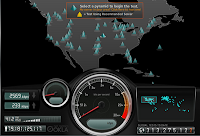Obama Addresses Cyber Security

May 29, 2009 (Associated Press) America has failed for too long to adequately protect the security of its computer networks, President Barack Obama said Friday, announcing he will name a new cyber czar to press for action. Surrounded by a slew of government officials, aides and corporate executives, Obama said the U.S. has reached a "transformational moment" when computer networks are probed and attacked millions of times a day. "It's now clear this cyber threat is one of the most serious economic and national security challenges we face as a nation," Obama said, adding, "We're not as prepared as we should be, as a government or as a country." He said he will soon pick the person he wants to head a new White House office of cyber security, and that person will report to the National Security Council and the National Economic Council — a nod to his contention that the country's economic prosperity depends on cybersecurity. While the coordinator...





